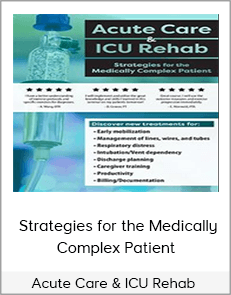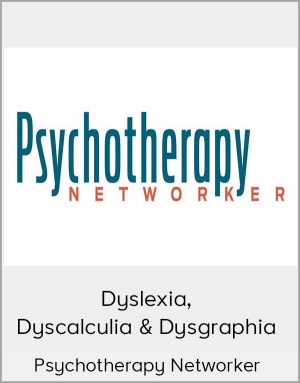Elisha Goldstein – Practical Strategies for Working With the Depressed Mind
$45.00$197.00 (-77%)
Why it’s crucial for the practitioner to match the practice to the client’s level of depression
Elisha Goldstein – Practical Strategies for Working With the Depressed Mind
Check it out: Elisha Goldstein – Practical Strategies for Working With the Depressed Mind
A Brain-Focused Approach For Helping Clients Relieve Depression Naturally Depression destroys lives. Its far-reaching effects can leave families in ruins. But neuroscience has given us powerful ways to shift the areas of the brain most affected by depression. That’s why we’re bringing you this short, focused course (at a discount)
Practical Brain-Focused Strategies for Working With Depression
Why Depression is a Form of Trauma
Why depression is the ultimate avoidance strategy
The four parts of the Depression Loop (and why it’s so hard to break)
Why the brain reacts to depression the same way it reacts to trauma
What an enlarged amygdala does to a depressed patient
Shame: depression’s worst nightmare
The neuroscience behind the shame-depression connection
The crucial role of the vagus nerve in depression
How to Ignite the Depression-Battling Part of the Brain
How to build the implicit memories that will take down depression
One way to break up old emotional patterns to reduce reactivity
“Tuning the Heart”: one skill that primes the brain against depression
The one practice that can lead to a massive left prefrontal shift
How to reduce the cellular inflammation that’s driven by depression
How to Create a Flexible Mind to Combat Depression
Rick Hanson, PhD Kelly McGonigal, PhD Ron Siegel, PsyD
The one “guilty pleasure” that powers strong neural connections
How “play” affects the nervous system in a client who is depressed
What happens to the self-critic in both playfulness and depression
How to rewire the cognitive processing that gets shut down by depression
How to activate the “Brain Fertilizer” protein that builds neuroplasticity
The 3 Things You Need to Foster Change in Your Client
How to integrate the “Three-Legged Stool” approach to reduce suffering
The one critical skill from childhood that boosts neuroplasticity (and why you may need to relearn it)
The four key attitudes that lead to growth
One Strategy to Help Your Clients Feel Resilient
How to help clients experience resilience from the inside-out
The direct connection between positive decisions and immune functioning
Why we’re wired to accept negativity (and block resiliency)
Why Your Patient Needs an Adult Play Date
How a client’s playful memories can transform their childhood narrative
How “foreboding joy” leads to anxiety
The survivalist brain and why it protects some clients from feeling “too good”
How implicit messaging can derail the intervention
How to Help Clients Avoid Falling Into the Deficiency Gap
Why a client’s values can lead them to greater depression
How to help clients turn “values into verbs” to enhance brain integration
Why caretakers might be resistant to compassion work
How to tailor an intervention for chronically-depressed patients
Why it’s crucial for the practitioner to match the practice to the client’s level of depression
How to Help Clients Shift From a Fixed Mindset to a Growth Mindset
Michael Yapko, PhD Ron Siegel, PsyD
A 4-step process for encouraging positive beliefs
The slippery slope that takes a client from deficiency to depression
One tactic for defusing unconscious negative thoughts
Why visualization is like a springboard for the brain




















